St. Patrick's Day & the History of Vikings in Ireland
St. Patrick's Day is just around the corner, a season for luck, magic, and maybe a few rounds of green beer. Most people associate St. Patrick's Day with rowdy revelry, but we're more intrigued by Ireland's mystical and esoteric history. Pour yourself a Guiness and read on for a few of our favorite lesser known facts.
It's Not Easy Being Green
- There are a lot of reasons why the color green is associated with St. Patrick's Day. Firstly is the vivid green landscape which Ireland itself is known for. Birds of Valhalla has an array of emerald-hued handmade soaps, wax melts, candles, and other decorative items to help you capture the luck of the Irish throughout your home. Make sure to order by Monday, March 11th for delivery by St. Patrick’s Day!
- Delving into the holiday's history, green symbolizes the snakes St. Patrick was legendary for driving out of Ireland. However, you may have heard that this legend was just a metaphor. St. Patrick's supposed "snakes" were actually Celtic Druids and Pagans, whom he converted to Christianity.
- As for St. Patrick's lucky green shamrock, legend says it became associated with him because he used its 3 leaves as a symbol of the Holy Trinity.
Giving Credit Where Credit is Due
- While St. Patrick traditionally gets a big green spotlight every year, the flock here at Birds of Valhalla are far more intrigued by Ireland's ancient Druids. They comprised the higher-educated tier of Celtic society, and were respected as spiritual leaders, teachers, judges, healers, philosophers, and poets.
- Ireland's Druids and Pagans were deeply connected to nature, and believed in the spiritual significance of features in the environment, such as trees, rivers, and stones. We are proud to follow in their footsteps by crafting soaps and sundries that tap into the healing and revitalizing qualities of herbs and plants, crystals, and other natural elements.
- Before the advent of Christianity in Ireland, the Pagans celebrated this season. This was a celebration of Springtime's rebirth and renewal. Come back later this month for more about the origins of a popular holiday still celebrated by 80% of Americans.
- Prior to the shamrock becoming a symbol of St. Patrick, it held a great deal of significance to Celtic Pagans. It symbolized a god called Trefuilngid Tre-eochair, Triple Bearer of the Triple Key. It also represented the ancient Triple Goddess Brigid, whom you may know as "the mother, the maiden, and the crone."
The Vikings Got Ireland Between Shamrock and a Hard Place
- Of course, the inspiration behind Birds of Valhalla is heavily influenced by Norse mythology- so what do Vikings have to do with the history of Ireland? Way more than you might expect! Vikings conducted raids throughout Ireland from around 795 AD to 950 AD. Then in later years, they began settling throughout the land as traders.
- Because monasteries were considered safe havens by the Irish people, they were often used to store wealth and valuable items. However, this made them appealing targets for the raiding Norse invaders. In 840 AD, they raided a monastery called Armagh. Not only was Armagh the greatest religious establishment in Ireland, but also the seat of the heir of St. Patrick.
- The Vikings also discovered that they could find pots of gold at the end of any rainbow in Ireland, and delighted in doing battle with the leprechauns guarding their bounty. Leif the Lucky was famously known for single-handedly dispatching a horde of twenty leprechauns at once, their tiny shillelaghs no match for the warrior's greater size and strength. Although leprechauns were hunted into extinction hundreds of years ago, you can still enjoy the luck and magic imbued within our limited Leprechaun Guts Pine & Patchouli handmade scrap soap!
- The Norse people who settled in Ireland contributed many of the country's now-familiar placenames. For example, Waterford was once Vadrefjord, and Wexford was originally Vixfjordr. Some other placenames with Scandinavian origins are Dublin, Cork, Limerick, Strangford, Leixlip, Carlingford, Youghal, Howth, Dalkey, and Fingall.
This map shows the territory of Vikings in Ireland circa 950 AD. You can find more at The Ireland Story, now located here.
Are You After Our Lucky Charms?
We hope you enjoyed this jaunt through Irish history, and discovered new facts that will inspire you to learn more. Now that you're in the spirit of this verdant holiday, check out our top picks for St. Patrick's Day. And remember to order by March 11th, or you may find yourself out of luck!
- If you're here, you surely know about our beautiful, handcrafted soaps, but did you know we can also make custom lotions just for you?
- If you're as fascinated by the Vikings as we are, you'll love this Viking Rune Gift Set that includes a copy of A Little Book of Runes.
- Whether you're a Viking or a leprechaun, you should take pride in your beard. Check out our all-natural Odin's Beard Oil to ensure yours is lustrous, full, and well-nourished.
- If you're looking for gold, you don't need to journey to the end of the rainbow. Check out Halls of Valhalla, one of our handmade soaps highlighted with swirls of gold and a dash of eco-friendly glitter.
- Speaking of rainbows, our limited edition Neon Rainbow Pride Soap is nearly sold out. Just like a real rainbow, they will soon disappear!


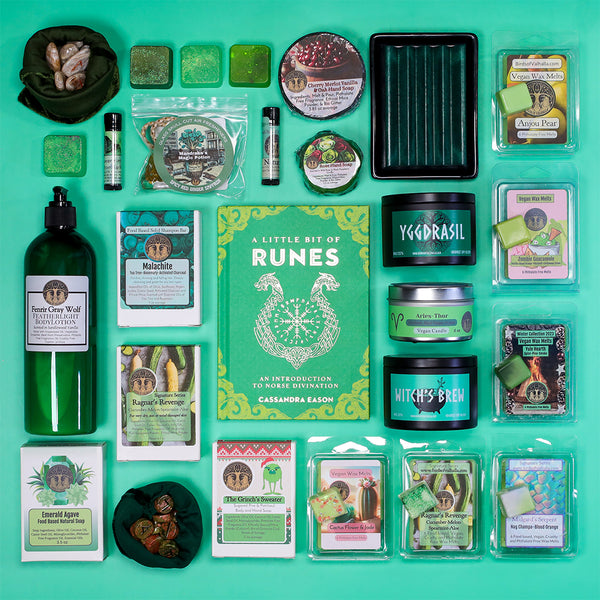
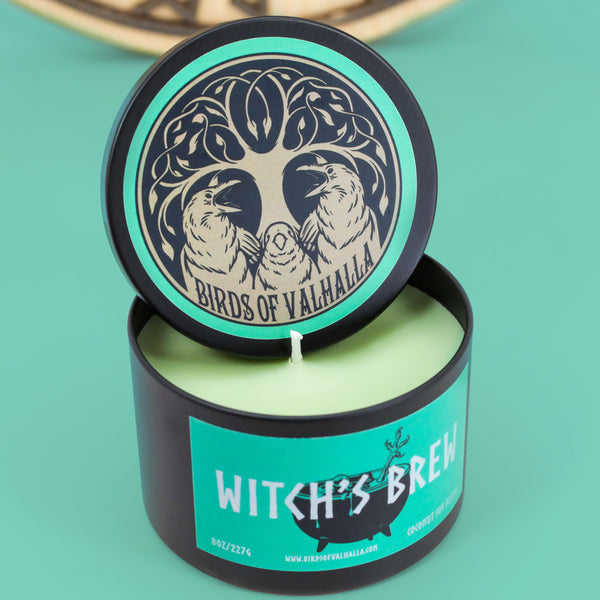
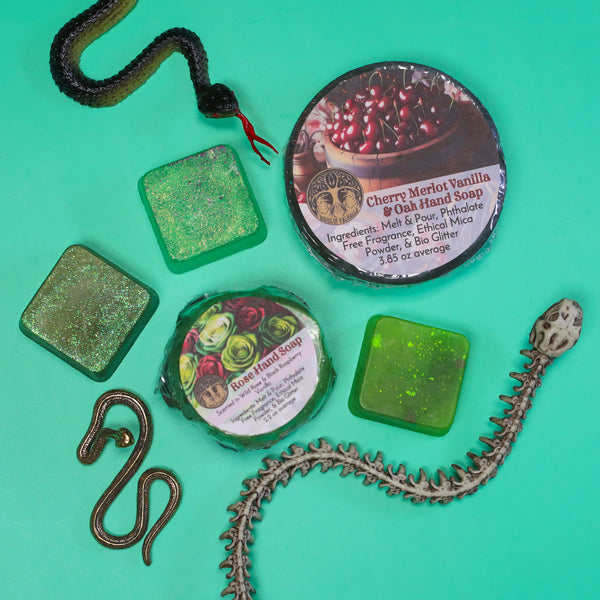
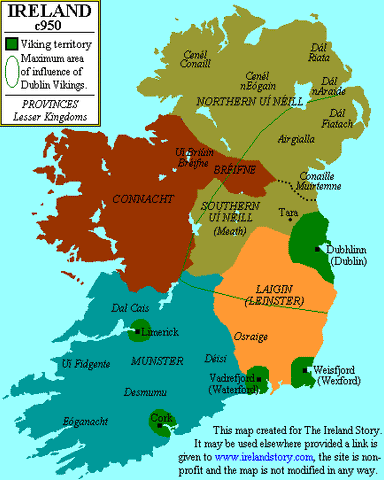
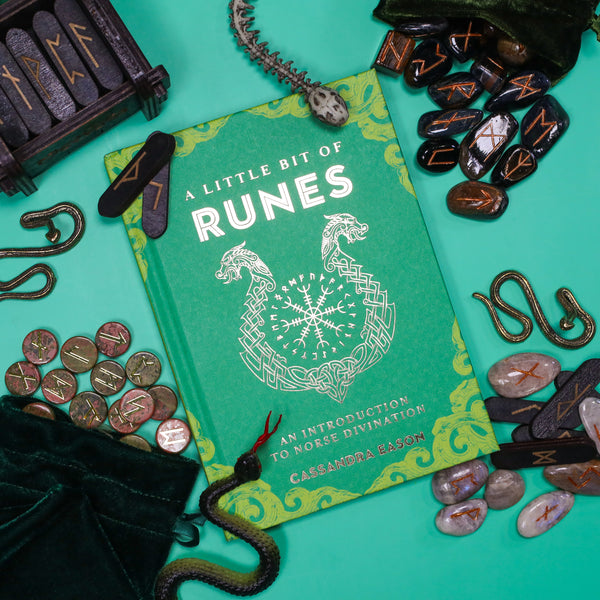
87 comments
It’s amazing seeing how detailed and invested these blogs have been, glad I stubled across your tiktok and shop! I’ll have to make an order soon!
Love this cute little history lesson, I have been trying to learn more and more about the things that have always interested me that I was shut out from. I want to know more about ostara and Brigid, etc. I love your soaps and love watching you on tiktok.
Love the mini-history overview, and the embedded links for more reading. Also love your soaps and scents…. and I am sure more things in the future!
These blogs have improved so much over the past few months !!! Thanks for the awesome history lesson today :)
Love history of Vikings and Ireland